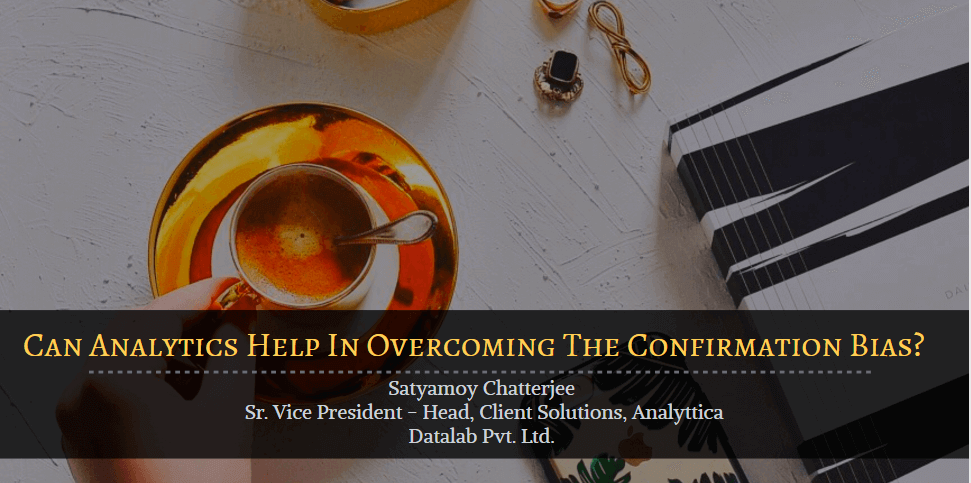Can Analytics Help In Overcoming The Confirmation Bias?
Published by Satyamoy Chatterjee | Sr. Vice President, Head of Client Solutions
- January 4, 2022
- Posted by: admin
- Category: Data Science


“The art of thinking clearly” by Rolf Dobelli is one of my favourite reads of recent times. Amongst many pearls of wisdom stitched together by practical examples inside the three hundred pages of carefully chosen words, the chapters on ‘confirmation bias’ are the ones I admire the most; It indicates that in most of the circumstances a human mind is attuned to validate it’s range of closely guarded beliefs. A new situation demanding an action is addressed by a mind only after viewing in through the lenses of ‘confirmation bias’.
Parallels can be drawn and many practical examples can be found as fallacies of this bias. I will attempt at connecting with organizations and try to think aloud on how fact based deductions can potentially help in overcoming this on an organization’s perspectives.
Organization cultures are at times victims of confirmation bias. The set of beliefs (not to confuse with set of values) of an organization’s ecosystem at times orient the “neutral facts” to conform to the beliefs; “supporting facts” are scaled up out of proportion and “opposing facts” are conveniently ignored to continue with the beliefs.
Like Charlie Chaplin’s language of silence that spoke louder than the loudest and communicated fluently with the entire world, “math” is another leveller that does magic if used the right way. I do believe (and I like to think, it’s not my confirmation bias ![]()
![]()
In today’s world, where every action is recorded; every event pre the event and post the event is available in some form or other; analytics presents an even stronger differentiator. Meaningful and “authentic analytics” of facts (hidden primarily in numbers) can certainly help in overcoming this bias. I stress on authenticity here, as I am afraid, application of analytics by a mind with ‘confirmation bias’ can actually boomerang and do worse than good.
